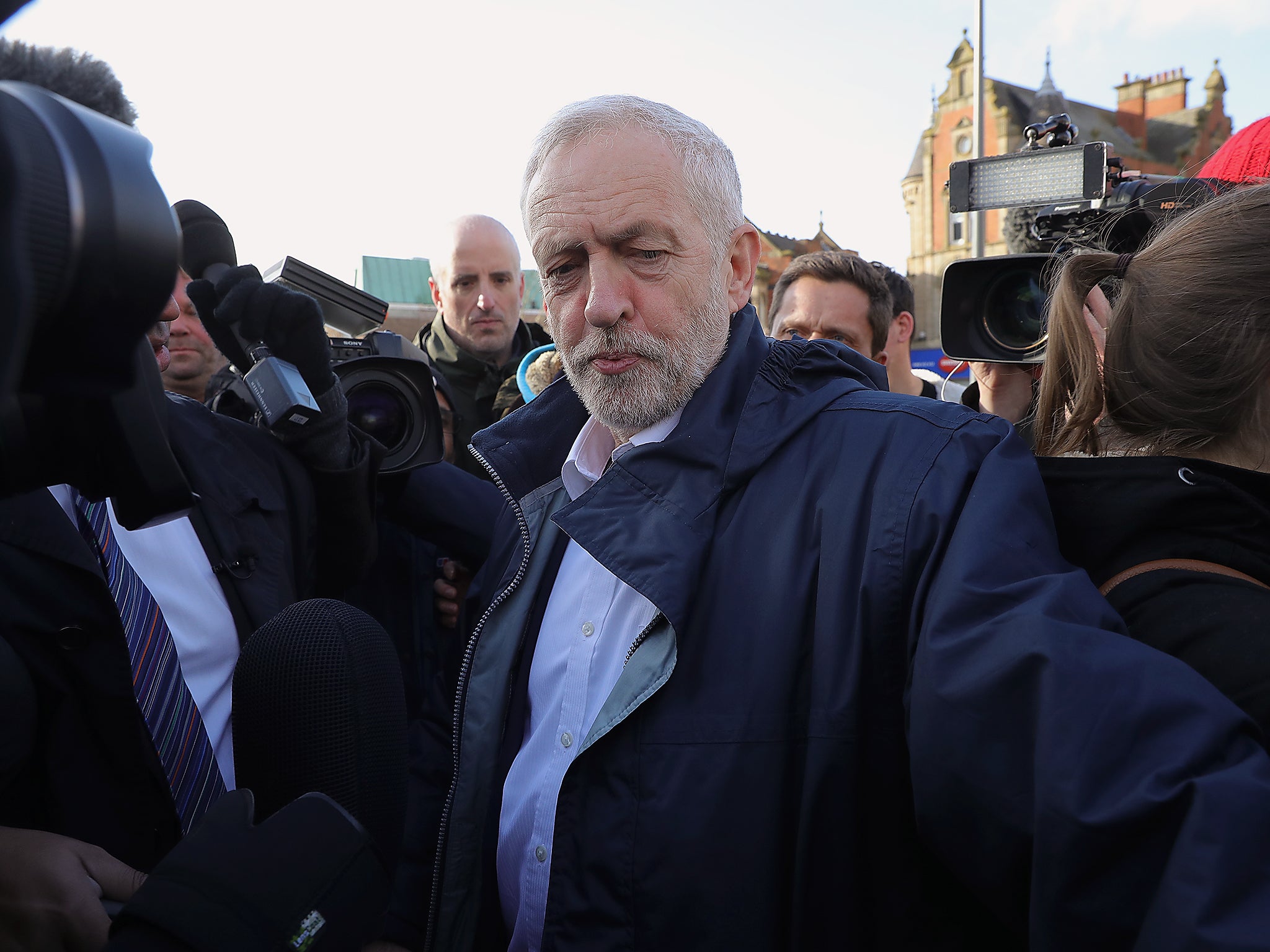Jeremy Corbyn isn't in denial about his position anymore – but his supporters refuse to let him fall on his sword
If Ukip now implodes, the Tories rather than Labour will benefit. The downside for the country is that this marks another step towards a one-party state


Jeremy Corbyn has run out of excuses after Labour’s catastrophic defeat in the Copeland by-election. His allies are still blaming party “disunity”. They cite a leadership challenge that ended five months ago, and sniping by Labour MPs, even though the overwhelming majority no longer attack Corbyn in order to avoid being accused of destabilising him.
On Monday, Corbyn did a Donald Trump and blamed the media for his party’s desperate plight. Yes, much of the coverage of Labour is hostile. But much of the criticism is deserved. Under Corbyn’s leadership, Labour is dysfunctional. It has no coherent strategy, no key policies the public know about, and is incapable of communicating a coherent message. Roadshows, campaign rallies and conferences that preach to the converted are no substitute for engaging the voters.
After Copeland, Corbynistas are blaming Tony Blair for his anti-Brexit intervention a week ago. But that doesn’t wash either; if Blair’s speech had been damaging, it would surely have hurt Labour in the Stoke-on-Trent Central by-election. Allies point to Corbyn’s previous opposition to nuclear power as a “special circumstance” in Copeland, home to the Sellafield reprocessing plant. But the causes of Labour’s defeat are much more fundamental.
Even some of his friends admit Corbyn is, as Hilary Benn put it last year, “not a leader”. He is not enjoying the job as much as he once did. He is an honourable man, and not in denial about his own weakness or his party’s dire position. The only thing stopping his friends from allowing him to fall on his sword is that they cannot be certain that another left-winger would succeed him. They will not risk handing power to anyone who is not part of a closed inner circle which has just become even tighter; pragmatists such as his aide Simon Fletcher and elections coordinator Jon Trickett have been squeezed out. Behind closed doors, the blame game is also underway within Team Corbyn, another sign that its time is running out.
Corbyn will carry on, for a while at least, not out of a sense of duty to the country or the party but to his own left-wing clique. If they could guarantee the succession, they would put him out of his misery.
Labour can take no comfort from its victory in Stoke. True, a double defeat in Thursday’s by-elections would have been seen as an existential threat to Labour. While Labour will be relieved to have seen off a real challenge from Ukip, the next general election will not be between Labour and Ukip but Labour and the Conservatives. Labour is too weak to win power but too strong to die.
Instead, the party facing an existential threat is Ukip. Paul Nuttall, its leader, should have won or at least run Labour close in a seat where 70 per cent of people voted Leave in last year’s referendum. Instead, Brexit means that Ukip’s job has been done. The rebel party will struggle to find a new cause; even Nigel Farage, a much better politician than the amateurish Nuttall, would have suffered the same fate in Stoke. Which is probably why Farage does not want to lead his party anymore; he has his place in the history books by securing the referendum.
The only circumstances in which Ukip could prosper now would be if Theresa May stalled on Brexit – one reason why she isn’t. Ukip’s message to voters is that Brexit could still be blocked. But May has convinced the public that she is “getting on with it”, as the majority now wish.
The Tories’ win in Copeland is a personal triumph for May – the contest turned conventional politics on its head by delivering a vote of no confidence in the Opposition rather than the Government. If Ukip now implodes, the Tories rather than Labour will benefit; they will target about 45 Labour seats, many in the North and Midlands, held by Labour but with a sizeable Ukip vote. Nuttall’s plan to supplant Labour as the champion of the working class now looks like a pipe dream. May is streets ahead of Ukip with her appeal to “ordinary working families”, even if she has not yet turned her rhetoric into policy.
Copeland shows that May’s pitch is right. The downside for the country is that this marks another step towards a one-party state. And the Tories’ triumph will be seen as vindicating her strategy on Brexit, making a hard Brexit that damages the economy more likely. The Prime Minister doesn’t deliberately seek that, but is drifting that way. There is no one to stop her at a time when Labour is incapable of providing the effective opposition the country desperately needs.

Join our commenting forum
Join thought-provoking conversations, follow other Independent readers and see their replies